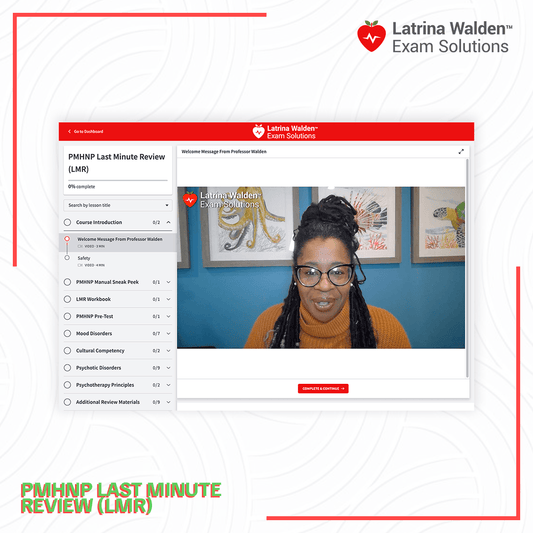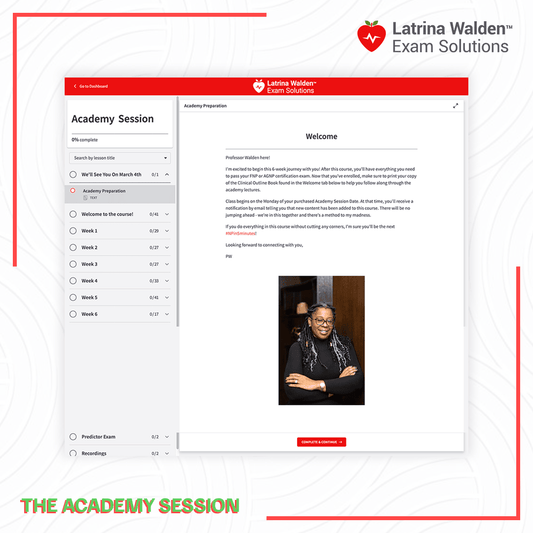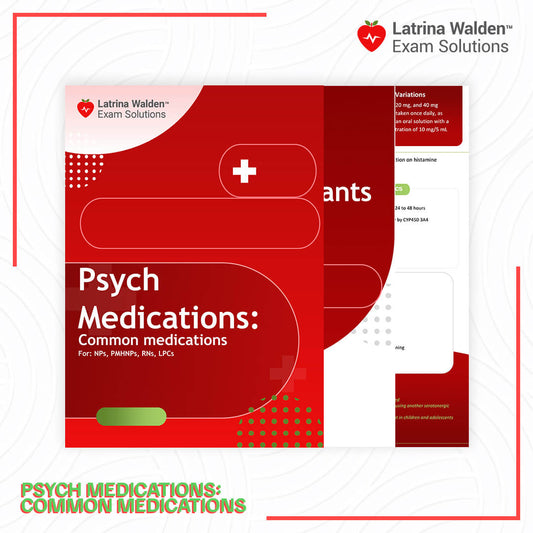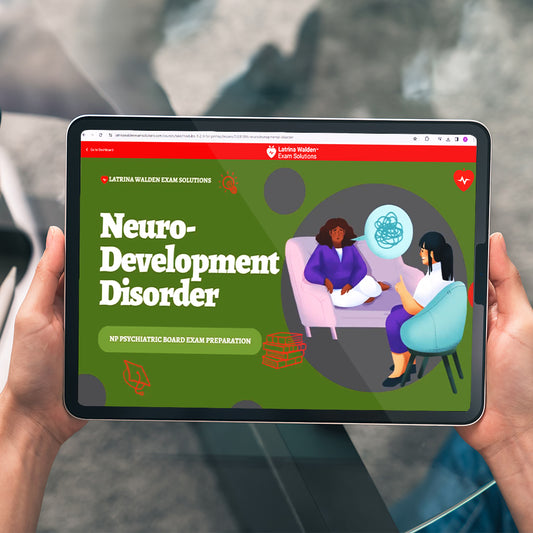Did you know that 1 in 5 adults in the US experiences mental illness every year? What if we told you that of these tens of millions of Americans, only 47% received treatment in 2021? In 2022, the Kaiser Family Foundation reported that 47% of people in the United States were living in an area experiencing a mental health provider shortage. In some states, it was estimated that around 700 mental health providers would be required to adequately fulfill this need. Enter Psychiatric-Mental Health Nurse Practitioners, or PMHNPs. As our society becomes increasingly aware of mental health issues, the need for qualified professionals in this field continues to grow. So what exactly does a PMHNP do?
Table of Contents
What Are the Responsibilities of a PMHNP?
Assessment and Diagnosis
Treatment Planning and Implementation
Patient Education
Preventive Care and Health Promotion
Where Do PMHNPs Work?
How Do I Become A PMHNP?
How Long Does it Take to Become A PMHNP?
What Are the Responsibilities of A PMHNP?
PMHNPs are advanced practice nurses (APRNs) who specialize in providing holistic and comprehensive mental healthcare to individuals of all ages. Their role extends beyond traditional nursing, and encompasses the following elements.
Assessment and Diagnosis
One of the primary responsibilities of PMHNPs is to conduct thorough assessments of their patients’ mental health. This involves gathering information about their medical history, psychological well-being, and social circumstances. PMHNPs employ a variety of assessment tools and observation techniques to form a comprehensive understanding of a patient’s mental health status. They then use their training to make diagnoses; this involves identifying mental health disorders, considering comorbidities, and recognizing the unique factors that may influence a patient’s mental status.

Treatment Planning and Implementation
Based on their assessment and diagnosis, PMHNPs develop individualized treatment plans for their patients. These plans often involve a combination of pharmacological and non-pharmacological interventions. In most cases, PMHNPs are authorized to prescribe medication; however, their scope of practice goes beyond medication management. PMHNPs may also engage in psychotherapy, counseling, and other therapeutic approaches to address their patients’ conditions. Collaborating with a multidisciplinary team, including psychiatrists and social workers, is common to ensure comprehensive care.
Patient Education
Empowering patients with an understanding of their mental health is a key aspect of the PMHNP role. PMHNPs provide education on medications, coping strategies, and lifestyle modifications that can positively impact mental health. By fostering a therapeutic relationship build on trust and open communication, PMHNPs can help patients actively participate in their own care.
Preventive Care and Health Promotion
PMHNPs, like most NPs, are not only focused on treating existing mental health conditions but also play a role in preventive care and health promotion. Through regular check-ups, screenings, and mental health assessments, they can work to identify potential risk factors and intervene early to prevent the development or worsening of mental health issues.
Where Do PMHNPs Work?
Psychiatric-Mental Health Nurse Practitioners can work in a variety of healthcare settings, including academic environments. These can include private practice, schools, public or community health centers, hospitals, substance abuse treatment programs, and nursing homes.
How Do I Become A PMHNP?
Becoming a Psychiatric Mental Health Nurse Practitioner involves a well-defined educational and certification pathway. Let’s walk through these key steps:
Educational Preparation
First, earn a Bachelor of Science in Nursing (BSN) from an accredited institution. Alternatively, some individuals choose to pursue an Associate Degree in Nursing (ADN) followed by a BSn completion program.

RN Licensure
Next, pass the National Council Licensure Examination for Registered Nurses (NCLEX-RN) to become a licensed registered nurse (RN). Gain practical experience in psychiatric nursing through employment or clinical rotations.
Advanced Education
Pursue a Master of Science in Nursing (MSN) or a Doctor of Nursing Practice (DNP) with a specialization in psychiatric mental health nursing. Choose a program accredited by the Commission on Collegiate Nursing Education (CCNE) or the Accreditation Commision for Education in Nursing (ACEN).
Clinical Training
Complete the required clinical hours in psychiatric-mental health nursing during your graduate program. These hands-on experiences provide the practical skills and knowledge needed to excel in the field.
Certification Exam
After completing your education and clinical hours, you are eligible to take the Psychiatric-Mental Health Nurse Practitioner Certification (PMHNP-BC) exam offered by the AMerican Nurses Credentialing Center (ANCC) or the Psychiatric Mental Health Nurse Practitioner Exam (PMHN-BC) offered by the American Nurses Association. As an upcoming third and upcoming option, the American Academy of Nurse Practitioners (AANP) recently announced that it will be offering its own psychiatric-mental health certification exam.
State Licensure
Obtain state licensure as an Advanced Practice Registered Nurse (APRN) with a specialization in psychiatric mental health. Requirements vary by state, so check with your state board of nursing for specific guidelines.
Ongoing Professional Development
Mental health is a dynamic field, and staying current with the developments in research and practice is crucial. Engage in continuous education–which is likely required for your certification renewal as well–, attend conferences, and pursue opportunities for professional growth.
How Long Does It Take to Become A PMHNP?
As you just learned, certifying bodies like ANCC typically require applicants to hold a current, active RN license as well as a master’s, post-graduate certificate, or Doctor of Nursing Practice (DNP). This includes a minimum of 500 faculty-supervised clinical hours as well as other curriculum requirements. So, given the time it takes to earn an undergraduate degree (~4 years), a master’s or DNP (2-4 years), and time to study for, take, and pass both the NCLEX and ANCC exam, the process typically takes around 6 to 9 years.
From conducting assessments and making diagnoses to developing personalized treatment plans and advocating for mental health awareness, PMHNPs play a pivotal role in the evolving landscape of mental health care. As you embark on this career path, remember that each patient you encounter is an opportunity to make a lasting impact, foster resilience, and contribute to the overall well-being of individuals and their communities. Embrace the challenges, celebrate the successes, and continue to be a compassionate advocate for mental health!










